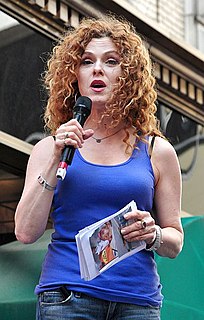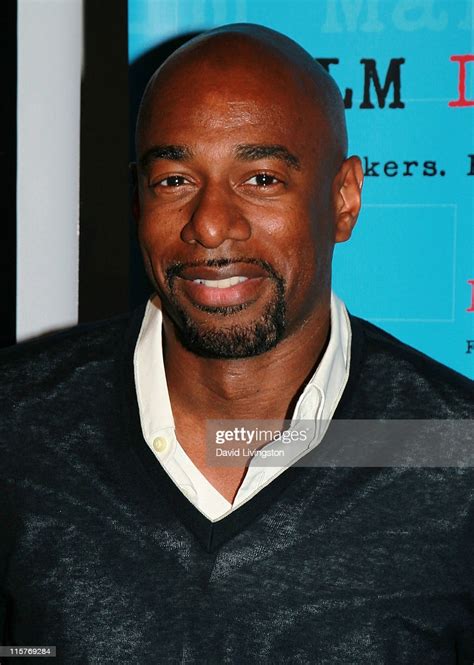A Quote by Idris Elba
It's really funny because the same people who loved me as Stringer Bell were the same people that were watching 'Daddy's Little Girls' literally in tears.
Related Quotes
I began to understand that there were certain talkers - certain girls - whom people liked to listen to, not because of what they, the girls, had to say, but because of the delight they took in saying it. A delight in themselves, a shine on their faces, a conviction that whatever they were telling about was remarkable and that they themselves could not help but give pleasure. There might be other people - people like me - who didn't concede this, but that was their loss. And people like me would never be the audience these girls were after, anyway.
Opera once was an important social instrument - especially in Italy. With Rossini and Verdi, people were listening to opera together and having the same catharsis with the same story, the same moral dilemmas. They were holding hands in the darkness. That has gone. Now perhaps they are holding hands watching television.
The ball scene was never really only gay people. I think people have this notion that if there's a man hanging around a gay man, he must be gay, but that's just stigma. Back in the day, it was the same; there were lots of different people there: gay, straight, whatever. They did not care what they were called because they knew who they were.
I had said that Le Guin's worlds were real because her people were so real, and he said yes, but the people were so real because they were the people the worlds would have produced. If you put Ged to grow up on Anarres or Shevek in Earthsea, they would be the same people, the backgrounds made the people, which of course you see all the time in mainstream fiction, but it's rare in SF.
When you go to Africa and you see people who are just like you and me - this is always my starting point. These are people who are just like you and me. The same synapses, same things are firing off in their heads, same dreams for their children, same hopes and aspirations that we all have. What can one do to reduce the possibility that their chances of a happy and healthy and prosperous life are not solely determined by the accident of where they were born?
Sometimes people have sympathized with me because long years of my life were spent in jail and in exile. Well, those years ... were a mixed experience. I hated them because they separated me from the dearest thing in the world-the struggle of my people for rebirth. At the same time, they were a blessing because I had what is so rare in this world-the opportunity of thinking about basic issues, the opportunity of examining afresh the beliefs I held.
I was a huge fan of this band called Sparks. It was a pretty good inauguration to music since their music is quite complex. They were a little glammy, and me - being a kid and not really understanding the complexity of grown-up lyrics - I took the best out of it. But at the same time, it was mysterious enough and too far away from me for me to really be able to reach it. But they were my first love affair in the world of music. I loved that band.



































